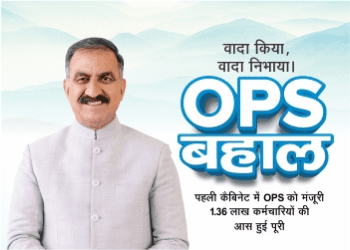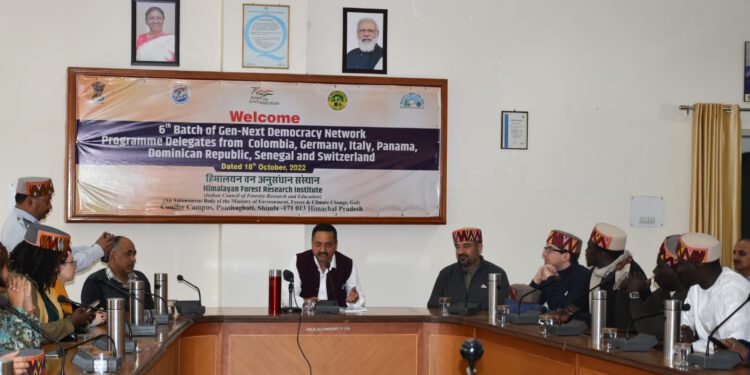A team of Gen-Next Democracy Network Programme Foreign Delegates today visited the Himalayan Forest Research Institute, Shimla. The team was lead by Shri Kamal Jit Singh, Senior Programme Director, Indian Council for Cultural Relations, Government of India, New Delhi who informed that this visit is organized for the representatives of 75 democratic countries of the world during which the delegation is made aware about Indian democracy, culture and cultural heritage.
Dr. Sandeep Sharma, Director, HFRI, Shimla welcomed the Gen-Next Democracy Network Programme Delegates for choosing HFRI, Shimla as a part of this important visit. He informed that during this visit, the team also visited Parliament of India, Election commission of India, New Delhi Municipal Committee, Agra, Amritsar and HFRI, Shimla. Dr. Sharma said that ICCR, as a part of activities for Azadi Ka Amrit Mahotsav is organizing exposure visit to the 22 delegates from Colombia, Italy, Panama, Dominican Republic, Senegal and Switzerland. These young delegates are the members of political parties (both ruling and opposition), entrepreneurs and rising leaders in their respective countries. He hoped that the visiting delegations and the Scientists of HFRI, Shimla will definitely be benefitted from the discussion on various aspects of forestry research and environmental conservation.
The team was apprised about the important flora of western Himalayas and also organized a knowledgeable walk of the adjoining forest and showed the important tree, herb and shrub species being found in and around Shimla. Dr. Vaneet Jishtu, Senior Scientist also apprised the visiting delegated about the forestry research activities being undertaken by the Institute towards development of forestry and conservation of environment in the western Himalayan States of the country.
After this a detailed interaction session was also organized in which the delegates of the visiting team and the Scientists actively participated. The team also visited the recently established Technology Demonstration Centre (TDC) where the technologies developed by HFRI, Shimla in the field of forestry were shown and explained to them. The visiting delegates shown their keen interest in the forestry research works being carried out by HFRI, Shimla for the development of forestry and environment conservation in this important part of the country.
Indian Council for Cultural Relations (ICCR), which was founded in 1950 by Maulana Abul Kalam Azad, independent India’s first Education Minister. Its objectives are to actively participate in the formulation and implementation of policies and programmes pertaining to India’s external cultural relations; to foster and strengthen cultural relations and mutual understanding between India and other countries; to promote cultural exchanges with other countries and people, and to develop relations with nations.












